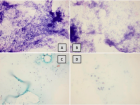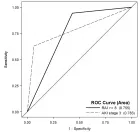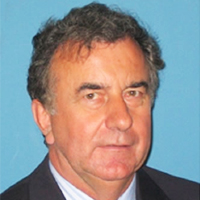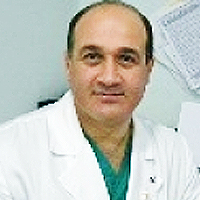Abstract
Research Article
Effects of dietary supplementation on progression to type 2 diabetes in subjects with prediabetes: a single center randomized double-blind placebo-controlled trial
Sathit Niramitmahapanya*, Preeyapat Chattieng, Tiersidh Nasomphan and Korbtham Sathirakul
Published: 03 February, 2023 | Volume 7 - Issue 1 | Pages: 00-007
Objectives: To examine the effect of dietary supplements on diabetic risk progression, blood glucose level, and lipid profiles.
Methods: A randomized, double-blind, placebo-controlled study was conducted at Rajavithi hospital, Thailand. Participants with prediabetes were randomly allocated to three arms of dietary supplements: placebo (PL) or curcumin plus fish oil and vitamin D (CFD), or curcumin plus fish oil (CF) for 24 weeks. Primary outcomes were the progression of glycemic status and the progression to overt diabetes at 24-week and 36-week follow-ups. Secondary outcomes were changes in glycemic profiles (fasting plasma glucose, 75 g OGTT 2-h plasma glucose or HbA1C), body weight, BMI and lipid profiles.
Results: A total of forty-seven participants (PL, n = 16; CFD, n = 15; CF, n = 16) were included in the study. At the 24-week follow-up, the participants with worsening glycemic status in the intervention groups were lower, CFD, CF and Placebo, 14.29%, 13.33% and 31.25%, respectively. However, the primary outcome, progression of glycemic status, was statistically different, with p - value = 0.046 (p < 0.05) when excluding previous diabetes in the study. As well as the incidence of type 2 diabetes at 24-week follow-up was not statistically different between the three groups, 14.29%, 13.33%, and 12.5%, p - value = 0.699 (p < 0.05) in CFD, CF, PL group, respectively. The secondary outcomes also failed to demonstrate the effect of dietary supplements on blood glucose, lipid profiles, weight, BMI and blood chemistry.
Conclusion: The combined dietary supplements which contained curcumin-fish oil-vitamin D,
could lower the glycemic status progression in prediabetes at six months follow-up and were well-tolerated among the participants.
Read Full Article HTML DOI: 10.29328/journal.acem.1001026 Cite this Article Read Full Article PDF
Keywords:
Dietary supplements; Curcumin; Fish oil; Vitamin D; Prediabetes
References
- Hamulka J, Jeruszka-Bielak M, Górnicka M, Drywień ME, Zielinska-Pukos MA. Dietary Supplements during COVID-19 Outbreak. Results of Google Trends Analysis Supported by PLifeCOVID-19 Online Studies. Nutrients. 2020 Dec 27;13(1):54. doi: 10.3390/nu13010054. PMID: 33375422; PMCID: PMC7823317.
- Kamiński M, Kręgielska-Narożna M, Bogdański P. Determination of the Popularity of Dietary Supplements Using Google Search Rankings. Nutrients. 2020 Mar 26;12(4):908. doi: 10.3390/nu12040908. PMID: 32224928; PMCID: PMC7231191.
- Miquel J, Bernd A, Sempere JM, Díaz-Alperi J, Ramírez A. The curcuma antioxidants: pharmacological effects and prospects for future clinical use. A review. Arch Gerontol Geriatr. 2002 Feb;34(1):37-46. doi: 10.1016/s0167-4943(01)00194-7. PMID: 14764309.
- Sundar Dhilip Kumar S, Houreld NN, Abrahamse H. Therapeutic Potential and Recent Advances of Curcumin in the Treatment of Aging-Associated Diseases. Molecules. 2018 Apr 5;23(4):835. doi: 10.3390/molecules23040835. PMID: 29621160; PMCID: PMC6017430.
- Asadi S, Gholami MS, Siassi F, Qorbani M, Khamoshian K, Sotoudeh G. Nano curcumin supplementation reduced the severity of diabetic sensorimotor polyneuropathy in patients with type 2 diabetes mellitus: A randomized double-blind placebo- controlled clinical trial. Complement Ther Med. 2019 Apr;43:253-260. doi: 10.1016/j.ctim.2019.02.014. Epub 2019 Feb 28. PMID: 30935539.
- Djalali M, Abdolahi M, Hosseini R, Miraghajani M, Mohammadi H, Djalali M. The effects of nano-curcumin supplementation on Th1/Th17 balance in migraine patients: A randomized controlled clinical trial. Complement Ther Clin Pract. 2020 Nov;41:101256. doi: 10.1016/j.ctcp.2020.101256. Epub 2020 Oct 29. PMID: 33147541.
- Chuengsamarn S, Rattanamongkolgul S, Luechapudiporn R, Phisalaphong C, Jirawatnotai S. Curcumin extract for prevention of type 2 diabetes. Diabetes Care. 2012 Nov;35(11):2121-7. doi: 10.2337/dc12-0116. Epub 2012 Jul 6. PMID: 22773702; PMCID: PMC3476912.
- Chuengsamarn S, Rattanamongkolgul S, Phonrat B, Tungtrongchitr R, Jirawatnotai S. Reduction of atherogenic risk in patients with type 2 diabetes by curcuminoid extract: a randomized controlled trial. J Nutr Biochem. 2014 Feb;25(2):144-50. doi: 10.1016/j.jnutbio.2013.09.013. Epub 2013 Nov 6. PMID: 24445038.
- Thota RN, Acharya SH, Garg ML. Curcumin and/or omega-3 polyunsaturated fatty acids supplementation reduces insulin resistance and blood lipids in individuals with high risk of type 2 diabetes: a randomised controlled trial. Lipids Health Dis. 2019 Jan 26;18(1):31. doi: 10.1186/s12944-019-0967-x. PMID: 30684965; PMCID: PMC6347796.
- Heshmati J, Moini A, Sepidarkish M, Morvaridzadeh M, Salehi M, Palmowski A, Mojtahedi MF, Shidfar F. Effects of curcumin supplementation on blood glucose, insulin resistance and androgens in patients with polycystic ovary syndrome: A randomized double-blind placebo-controlled clinical trial. Phytomedicine. 2021 Jan;80:153395. doi: 10.1016/j.phymed.2020.153395. Epub 2020 Oct 22. PMID: 33137599.
- Ramírez-Tortosa MC, Mesa MD, Aguilera MC, Quiles JL, Baró L, Ramirez-Tortosa CL, Martinez-Victoria E, Gil A. Oral administration of a turmeric extract inhibits LDL oxidation and has hypocholesterolemic effects in rabbits with experimental atherosclerosis. Atherosclerosis. 1999 Dec;147(2):371-8. doi: 10.1016/s0021-9150(99)00207-5. PMID: 10559523.
- Manjunatha H, Srinivasan K. Hypolipidemic and antioxidant effects of dietary curcumin and capsaicin in induced hypercholesterolemic rats. Lipids. 2007 Dec;42(12):1133-42. doi: 10.1007/s11745-007-3120-y. Epub 2007 Oct 25. PMID: 17960446.
- Alwi I, Santoso T, Suyono S, Sutrisna B, Suyatna FD, Kresno SB, Ernie S. The effect of curcumin on lipid level in patients with acute coronary syndrome. Acta Med Indones. 2008 Oct;40(4):201-10. PMID: 19151449.
- Hussein S, El-senosi Y, Ragab M, Hammad M. Hypolipidemic effect of curcumin in hyper-cholesterolemic rats. Benha Veterinary Medical Journal. 2014 Dec;27(2):277-89.
- Yang YS, Su YF, Yang HW, Lee YH, Chou JI, Ueng KC. Lipid-lowering effects of curcumin in patients with metabolic syndrome: a randomized, double-blind, placebo-controlled trial. Phytother Res. 2014 Dec;28(12):1770-7. doi: 10.1002/ptr.5197. Epub 2014 Aug 6. PMID: 25131839.
- Tang Y. Curcumin targets multiple pathways to halt hepatic stellate cell activation: updated mechanisms in vitro and in vivo. Dig Dis Sci. 2015 Jun;60(6):1554-64. doi: 10.1007/s10620-014-3487-6. Epub 2014 Dec 23. PMID: 25532502.
- Morrone Mda S, Schnorr CE, Behr GA, Gasparotto J, Bortolin RC, da Boit Martinello K, Saldanha Henkin B, Rabello TK, Zanotto-Filho A, Gelain DP, Moreira JC. Curcumin Supplementation Decreases Intestinal Adiposity Accumulation, Serum Cholesterol Alterations, and Oxidative Stress in Ovariectomized Rats. Oxid Med Cell Longev. 2016;2016:5719291. doi: 10.1155/2016/5719291. Epub 2015 Nov 23. PMID: 26640615; PMCID: PMC4658407.
- Qin S, Huang L, Gong J, Shen S, Huang J, Ren H, Hu H. Efficacy and safety of turmeric and curcumin in lowering blood lipid levels in patients with cardiovascular risk factors: a meta-analysis of randomized controlled trials. Nutr J. 2017 Oct 11;16(1):68. doi: 10.1186/s12937-017-0293-y. PMID: 29020971; PMCID: PMC5637251.
- Brinson BE, Miller S. Fish oil: what is the role in cardiovascular health? J Pharm Pract. 2012 Feb;25(1):69-74. doi: 10.1177/0897190011406983. PMID: 21676848.
- Mozaffarian D, Wu JH, de Oliveira Otto MC, Sandesara CM, Metcalf RG, Latini R, Libby P, Lombardi F, O'Gara PT, Page RL, Silletta MG, Tavazzi L, Marchioli R. Fish oil and post-operative atrial fibrillation: a meta-analysis of randomized controlled trials. J Am Coll Cardiol. 2013 May 28;61(21):2194-6. doi: 10.1016/j.jacc.2013.02.045. Epub 2013 Mar 26. PMID: 23541970; PMCID: PMC3697850.
- Villani AM, Crotty M, Cleland LG, James MJ, Fraser RJ, Cobiac L, Miller MD. Fish oil administration in older adults with cardiovascular disease or cardiovascular risk factors: is there potential for adverse events? A systematic review of the literature. Int J Cardiol. 2013 Oct 9;168(4):4371-5. doi: 10.1016/j.ijcard.2013.05.054. Epub 2013 Jun 3. PMID: 23742929.
- Napartivaumnuay N, Niramitmahapanya S, Deerochanawong C, Suthornthepavarakul T, Sarinnapakorn V, Jaruyawongs P. Maternal 25 hydroxyvitamin D level and its correlation in Thai gestational diabetes patients. J Med Assoc Thai. 2013 Mar;96 Suppl 3:S69-76. PMID: 23682526.
- Mirhosseini N, Vatanparast H, Mazidi M, Kimball SM. The Effect of Improved Serum 25-Hydroxyvitamin D Status on Glycemic Control in Diabetic Patients: A Meta-Analysis. J Clin Endocrinol Metab. 2017 Sep 1;102(9):3097-3110. doi: 10.1210/jc.2017-01024. PMID: 28957454.
- Niroomand M, Fotouhi A, Irannejad N, Hosseinpanah F. Does high-dose vitamin D supplementation impact insulin resistance and risk of development of diabetes in patients with pre-diabetes? A double-blind randomized clinical trial. Diabetes Res Clin Pract. 2019 Feb;148:1-9. doi: 10.1016/j.diabres.2018.12.008. Epub 2018 Dec 21. PMID: 30583032.
- Mohammadi S, Hajhashemy Z, Saneei P. Serum vitamin D levels in relation to type-2 diabetes and prediabetes in adults: a systematic review and dose-response meta-analysis of epidemiologic studies. Crit Rev Food Sci Nutr. 2022;62(29):8178-8198. doi: 10.1080/10408398.2021.1926220. Epub 2021 Jun 2. PMID: 34076544.
- Hahn J, Cook NR, Alexander EK, Friedman S, Walter J, Bubes V, Kotler G, Lee IM, Manson JE, Costenbader KH. Vitamin D and marine omega 3 fatty acid supplementation and incident autoimmune disease: VITAL randomized controlled trial. BMJ. 2022 Jan 26;376:e066452. doi: 10.1136/bmj-2021-066452. PMID: 35082139; PMCID: PMC8791065.
- The International Diabetes Federation (IDF). Diabetes atlas: Thailand diabetes report 2000 – 2045. URL:https://diabetesatlas.org/data/en/country/196/th.html.
- Hostalek U. Global epidemiology of prediabetes - present and future perspectives. Clin Diabetes Endocrinol. 2019 May 9;5:5. doi: 10.1186/s40842-019-0080-0. PMID: 31086677; PMCID: PMC6507173.
- Mando R, Waheed M, Michel A, Karabon P, Halalau A. Prediabetes as a risk factor for major adverse cardiovascular events. Ann Med. 2021 Dec;53(1):2090-2098. doi: 10.1080/07853890.2021.2000633. PMID: 34761971; PMCID: PMC8592612.
- Schwingshackl L, Hoffmann G. Monounsaturated fatty acids, olive oil and health status: a systematic review and meta-analysis of cohort studies. Lipids Health Dis. 2014 Oct 1;13:154. doi: 10.1186/1476-511X-13-154. PMID: 25274026; PMCID: PMC4198773.
- Schwingshackl L, Lampousi AM, Portillo MP, Romaguera D, Hoffmann G, Boeing H. Olive oil in the prevention and management of type 2 diabetes mellitus: a systematic review and meta-analysis of cohort studies and intervention trials. Nutr Diabetes. 2017 Apr 10;7(4):e262. doi: 10.1038/nutd.2017.12. PMID: 28394365; PMCID: PMC5436092.
- Estruch R, Ros E, Salas-Salvadó J, Covas MI, Corella D, Arós F, Gómez-Gracia E, Ruiz-Gutiérrez V, Fiol M, Lapetra J, Lamuela-Raventos RM, Serra-Majem L, Pintó X, Basora J, Muñoz MA, Sorlí JV, Martínez JA, Fitó M, Gea A, Hernán MA, Martínez-González MA; PREDIMED Study Investigators. Primary Prevention of Cardiovascular Disease with a Mediterranean Diet Supplemented with Extra-Virgin Olive Oil or Nuts. N Engl J Med. 2018 Jun 21;378(25):e34. doi: 10.1056/NEJMoa1800389. Epub 2018 Jun 13. PMID: 29897866.
- Mahanniran S, Tantipiwattanasakul W, Poompaisarnchai W. 2002. WHO: Quality of life questionnaire, SF-36 (WHOQOL)-BREF, Thai version. https://www.dmh.go.th/test/whoqol/, accessed 1 June 2021.
- American Diabetes Association Professional Practice Committee. 2. Classification and Diagnosis of Diabetes: Standards of Medical Care in Diabetes-2022. Diabetes Care. 2022 Jan 1;45(Suppl 1):S17-S38. doi: 10.2337/dc22-S002. PMID: 34964875.
- Bernard R. Fundamentals of biostatistics. 5th ed. Massachusetts: Duxbury Press; 2000.
- Saokaew S, Suwankesawong W, Permsuwan U, Chaiyakunapruk N. Safety of herbal products in Thailand: an analysis of reports in the thai health product vigilance center database from 2000 to 2008. Drug Saf. 2011 Apr 1;34(4):339-50. doi: 10.2165/11586590-000000000-00000. PMID: 21417506.
- Kohler C, Henkel E, Temelkova-Kurktschiev T, Fuecker K, Hanefeld M. Incidence of impaired fasting glucose tolerance and type 2 diabetes in German risk population: the RIAD study. Diabetologia. 2001; 44: A108.
Similar Articles
-
Effect on Vitamin D status of Breastfeeding Infants after Vitamin D3 Supplementation during Breastfeeding Lactation: A double-blind randomized controlled trialSathit Niramitmahapanya*,Surasak Kaoiean,Varaporn Sangtawesin,Anusorn Patpanaprapan,Narisa K Bordeerat,Chaicharn Deerochanawong. Effect on Vitamin D status of Breastfeeding Infants after Vitamin D3 Supplementation during Breastfeeding Lactation: A double-blind randomized controlled trial. . 2017 doi: 10.29328/journal.hcem.1001002; 1: 006-014
-
Evaluation of endothelial function in obese children and adolescentsHacer Efnan Melek,Ayça Törel Ergür*,Gökçe Kaan Ataç. Evaluation of endothelial function in obese children and adolescents. . 2021 doi: 10.29328/journal.acem.1001019; 5: 014-023
-
Effects of dietary supplementation on progression to type 2 diabetes in subjects with prediabetes: a single center randomized double-blind placebo-controlled trialSathit Niramitmahapanya*,Preeyapat Chattieng,Tiersidh Nasomphan,Korbtham Sathirakul. Effects of dietary supplementation on progression to type 2 diabetes in subjects with prediabetes: a single center randomized double-blind placebo-controlled trial. . 2023 doi: 10.29328/journal.acem.1001026; 7: 00-007
Recently Viewed
-
Exercise preserves pancreatic β-cell mass and function in obese OLETF ratsJiawei Zhao,Zhihong Yang,Min He,Qinghua Wang,Renming Hu*. Exercise preserves pancreatic β-cell mass and function in obese OLETF rats. Ann Clin Endocrinol Metabol. 2018: doi: 10.29328/journal.acem.1001007; 2: 022-029
-
Screening for Depressive Symptoms in Clinical and Nonclinical Youth: The Psychometric Properties of the Dutch Children’s Depression Inventory-2 (CDI-2)Denise HM Bodden*,Yvonne Stikkelbroek,Daan Creemers,Sanne PA Rasing,Elien De Caluwe,Caroline Braet. Screening for Depressive Symptoms in Clinical and Nonclinical Youth: The Psychometric Properties of the Dutch Children’s Depression Inventory-2 (CDI-2). Insights Depress Anxiety. 2025: doi: 10.29328/journal.ida.1001047; 9: 028-039
-
Exploring the Potential of Medicinal Plants in Bone Marrow Regeneration and Hematopoietic Stem Cell TherapyUgwu Okechukwu Paul-Chima*,Alum Esther Ugo. Exploring the Potential of Medicinal Plants in Bone Marrow Regeneration and Hematopoietic Stem Cell Therapy. Int J Bone Marrow Res. 2025: doi: 10.29328/journal.ijbmr.1001019; 8: 001-005
-
Deep Learning-Powered Genetic Insights for Elite Swimming Performance: Integrating DNA Markers, Physiological Biometrics and Performance AnalyticsRahul Kathuria,Reeta Devi,Asadi Srinivasulu*. Deep Learning-Powered Genetic Insights for Elite Swimming Performance: Integrating DNA Markers, Physiological Biometrics and Performance Analytics. Int J Bone Marrow Res. 2025: doi: 10.29328/journal.ijbmr.1001020; 8: 006-015
-
Penile Fracture: The “Cracking” Sound and Intra-operative Tunica Albuginea RepairAyoub Mamad*,Mohammed Amine Bibat,Mohammed Amine Elafari,Youssef Maachi,Amine Slaoui,Tarik Karmouni,Abdelatif Koutani,Khalid Elkhader. Penile Fracture: The “Cracking” Sound and Intra-operative Tunica Albuginea Repair. J Clin Med Exp Images. 2026: doi: 10.29328/journal.jcmei.1001038; 10: 001-002
Most Viewed
-
Impact of Latex Sensitization on Asthma and Rhinitis Progression: A Study at Abidjan-Cocody University Hospital - Côte d’Ivoire (Progression of Asthma and Rhinitis related to Latex Sensitization)Dasse Sery Romuald*, KL Siransy, N Koffi, RO Yeboah, EK Nguessan, HA Adou, VP Goran-Kouacou, AU Assi, JY Seri, S Moussa, D Oura, CL Memel, H Koya, E Atoukoula. Impact of Latex Sensitization on Asthma and Rhinitis Progression: A Study at Abidjan-Cocody University Hospital - Côte d’Ivoire (Progression of Asthma and Rhinitis related to Latex Sensitization). Arch Asthma Allergy Immunol. 2024 doi: 10.29328/journal.aaai.1001035; 8: 007-012
-
Causal Link between Human Blood Metabolites and Asthma: An Investigation Using Mendelian RandomizationYong-Qing Zhu, Xiao-Yan Meng, Jing-Hua Yang*. Causal Link between Human Blood Metabolites and Asthma: An Investigation Using Mendelian Randomization. Arch Asthma Allergy Immunol. 2023 doi: 10.29328/journal.aaai.1001032; 7: 012-022
-
An algorithm to safely manage oral food challenge in an office-based setting for children with multiple food allergiesNathalie Cottel,Aïcha Dieme,Véronique Orcel,Yannick Chantran,Mélisande Bourgoin-Heck,Jocelyne Just. An algorithm to safely manage oral food challenge in an office-based setting for children with multiple food allergies. Arch Asthma Allergy Immunol. 2021 doi: 10.29328/journal.aaai.1001027; 5: 030-037
-
Snow white: an allergic girl?Oreste Vittore Brenna*. Snow white: an allergic girl?. Arch Asthma Allergy Immunol. 2022 doi: 10.29328/journal.aaai.1001029; 6: 001-002
-
Cytokine intoxication as a model of cell apoptosis and predict of schizophrenia - like affective disordersElena Viktorovna Drozdova*. Cytokine intoxication as a model of cell apoptosis and predict of schizophrenia - like affective disorders. Arch Asthma Allergy Immunol. 2021 doi: 10.29328/journal.aaai.1001028; 5: 038-040

If you are already a member of our network and need to keep track of any developments regarding a question you have already submitted, click "take me to my Query."














































































































































